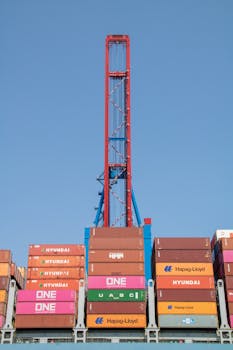
**
India's Farm Exports to Europe Face Crushing Blow: One Clause in US Trade Deal Could Devastate Agriculture
The recently concluded US trade deal contains a seemingly innocuous clause that could have devastating consequences for India's agricultural exports to the European Union (EU). This "one feed import clause," a seemingly small detail within a larger agreement, threatens to unravel India's carefully cultivated market access in the EU, jeopardizing billions of dollars in agricultural exports and potentially impacting the livelihoods of millions of Indian farmers. This article delves into the specifics of this clause, its potential ramifications for India's agricultural sector, and the broader geopolitical implications.
Understanding the "One Feed Import Clause" and its Impact
The controversial clause, buried within the complexities of the US trade deal, pertains to the import of animal feed. While the exact wording remains subject to legal interpretation and ongoing debate among trade experts, its core effect is to potentially create a preferential treatment for US agricultural products within the EU, indirectly impacting India's ability to compete. Specifically, it is feared that this clause could facilitate increased imports of US-produced animal feed into the EU, potentially displacing Indian feed and ultimately impacting the market for Indian agricultural products used in feed production, like soymeal and rice bran.
This is because the EU's agricultural policies are intricately linked. An increase in US feed imports could lead to a surplus of certain feed components in the EU market, lowering prices and making it harder for Indian exporters to compete on price. This, in turn, affects the demand for Indian agricultural products used in feed production and processing, leading to a ripple effect throughout the Indian agricultural value chain.
This issue has ignited a firestorm of controversy, especially given the substantial economic importance of agricultural exports to India's overall economy.
The Stakes for India's Agricultural Exports
India's agricultural exports to the EU are a significant component of its foreign trade, employing millions and contributing significantly to the nation's GDP. Major exports include:
- Rice: A staple food crop, India is a major rice exporter globally, with significant volumes headed to the EU.
- Soymeal & Rice Bran: Key components in animal feed, these exports are directly threatened by the "one feed import clause."
- Spices: India is the world’s leading producer and exporter of numerous spices, a substantial portion of which reaches the EU market.
- Fruits & Vegetables: A diverse range of fruits and vegetables from India find their way into European supermarkets.
The potential loss of access to this lucrative EU market due to the "one feed import clause" presents a severe economic threat to India, with potential consequences including:
- Reduced export earnings: Leading to a decline in foreign exchange reserves and impacting economic growth.
- Farmer distress: Lower demand for agricultural products could result in decreased income for farmers, potentially leading to widespread agrarian distress.
- Job losses: The knock-on effect could lead to significant job losses across the agricultural value chain, from farming to processing and export.
- Weakened trade relations: The situation could further complicate India's already complex trade relationship with the US and the EU.
Geopolitical Implications and Potential Solutions
This situation highlights the complex interplay of global trade agreements and their far-reaching consequences. The seemingly minor "one feed import clause" showcases how seemingly innocuous clauses can have major unintended consequences, particularly for developing nations heavily reliant on agricultural exports.
Several potential solutions are being explored by the Indian government, including:
- Negotiation and diplomatic efforts: India is actively engaged in diplomatic talks with the EU and the US to address the concerns surrounding this clause and seek amendments.
- Diversification of export markets: Reducing reliance on the EU market by exploring alternative export destinations.
- Strengthening domestic demand: Investing in domestic consumption and value-addition to reduce dependence on exports.
- Improving competitiveness: Enhancing efficiency and quality to better compete in the global market.
The future of India's agricultural exports to Europe remains uncertain, contingent on the outcome of ongoing negotiations and the interpretation of the controversial "one feed import clause." The situation underscores the critical need for careful consideration of the potential ramifications of trade agreements and the importance of safeguarding the interests of developing nations within the complex framework of global trade.
Keywords:
India, EU, US trade deal, agricultural exports, animal feed, soymeal, rice bran, rice exports, spice exports, fruit exports, vegetable exports, farmer distress, GDP impact, trade negotiations, geopolitical implications, global trade, WTO, India-EU relations, India-US relations, agricultural policy, market access, export competitiveness.
Conclusion:
The "one feed import clause" serves as a stark reminder of the interconnectedness of global trade and the potential for unintended consequences. The impact on India's agricultural sector could be substantial, necessitating immediate action from both the Indian government and the international community to mitigate the potential damage and ensure fair and equitable trade practices. The situation underscores the need for greater transparency and careful consideration of the implications of trade agreements on developing economies heavily reliant on agricultural exports. The coming months will be critical in determining the fate of India's farm exports to Europe and the well-being of millions dependent on this crucial sector.




















